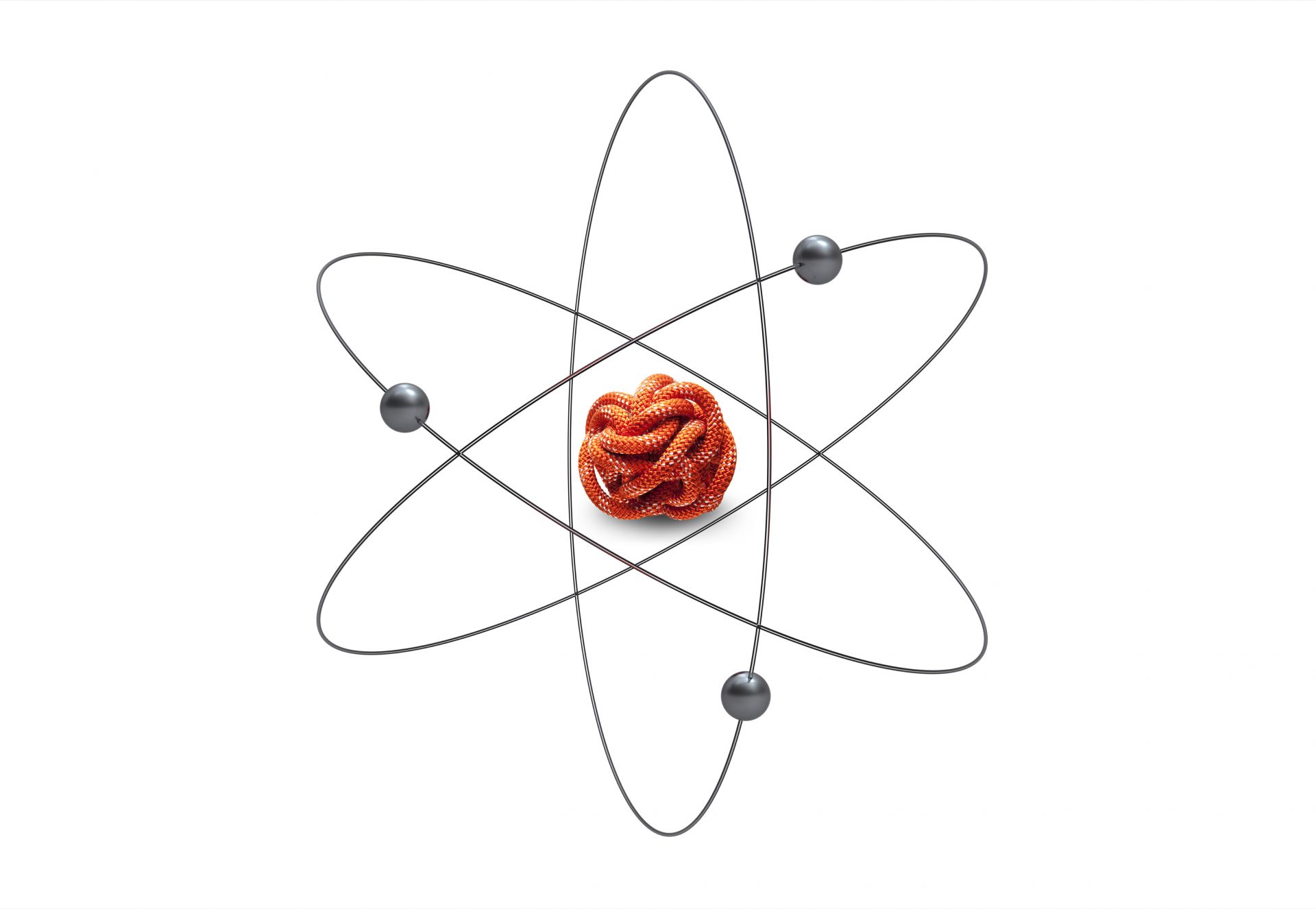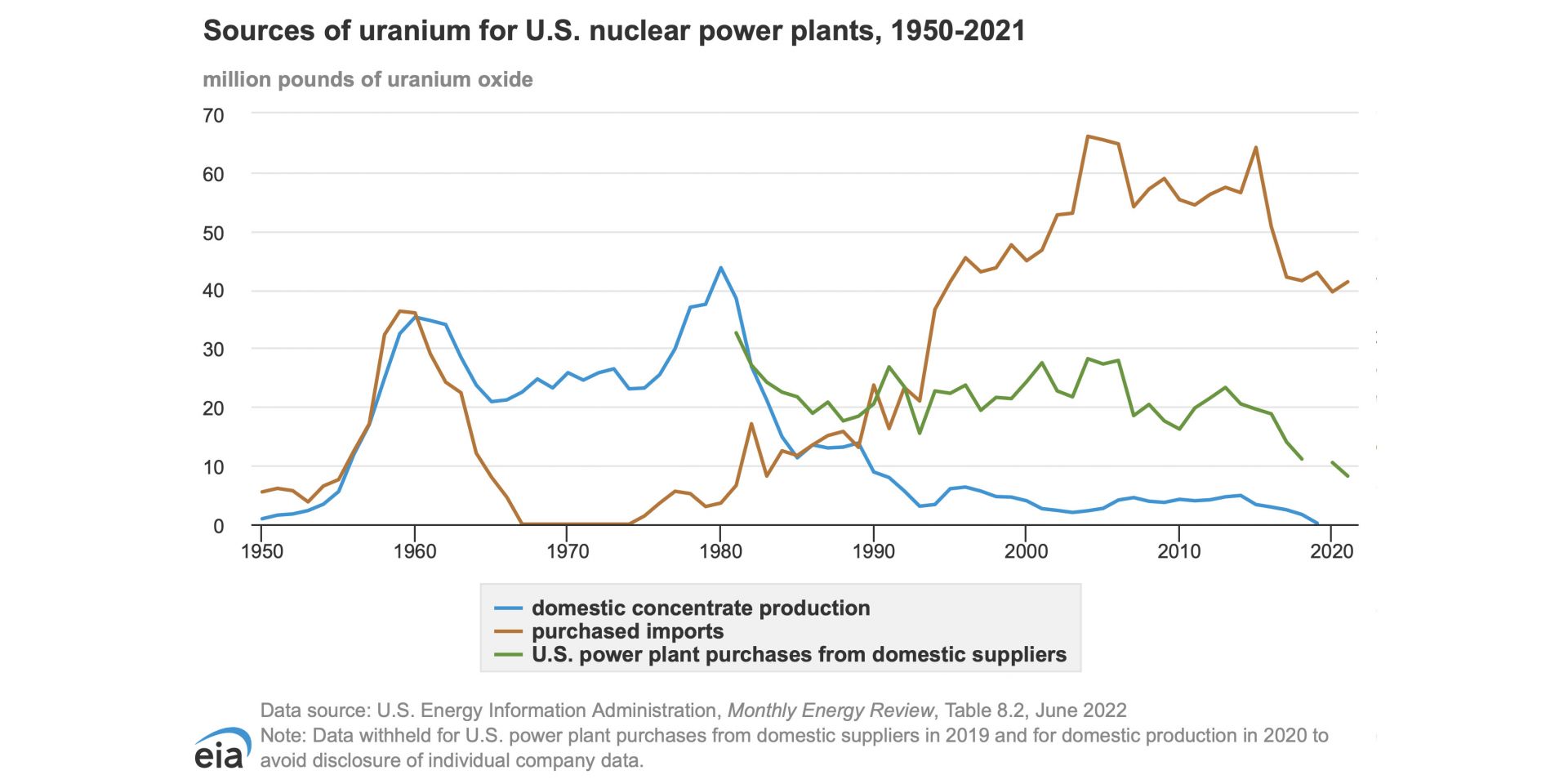The Khmelnitskiy nuclear power plant, site of Ukraine's planned new reactors. (Photo: RLuts)
Ukraine plans to start construction on four new nuclear plants this summer or fall, the country’s energy minister said in televised remarks today.
The quicker timeline aims to compensate Ukraine for lost energy capacity as its war with Russia continues. Ukraine’s government, however, still needs to sign off on the plans.
“We need vessels,” said energy minister German Galushchenko.
Urenco UK’s Capenhurst enrichment site, which received a grant in July 2023 to prepare for HALEU enrichment. (Photo: Urenco UK)
The United Kingdom’s Department for Energy Security and Net Zero announced plans on January 7 to invest £300 million (about $383 million) to build a high-assay low-enriched uranium (HALEU) enrichment facility in northwest England. The goal? To “end Russia’s reign as the only commercial producer of HALEU.” Britain is now the first European country to declare that it will begin HALEU enrichment in a bid for supply chain security.
Africa is home to 1.5 billion people in 54 countries living on 12 million square miles. The economies of many of these countries are hobbled by a general dearth of energy that nuclear could solve without adding to the harm of global warming.
The World Nuclear Association and the African Commission on Nuclear Energy (AFCONE) last year signed a memorandum of understanding to encourage the use of nuclear energy in support of economic growth and sustainable energy development in Africa.
Olsen was part of the IAEA team that inspected the Rivne nuclear power plant in Ukraine last year. (Photo: IAEA)
Student members are the future of the American Nuclear Society, and ANS believes in the importance of supporting students those who have shown academic, service, and leadership excellence as they navigate their early careers. Robert Olsen, now a nuclear security officer with the International Atomic Energy Agency in Vienna, Austria, was one such beneficiary.
The ministers representing their respective nations as the statement on civil nuclear fuel cooperation was announced were (from left) Jonathan Wilkinson, minister of natural resources of Canada; Yasutoshi Nishimura, Japan’s minister of economy, trade, and industry; Jennifer Granholm, U.S. energy secretary; Grant Shapps, U.K. energy security secretary; and Agnes Pannier-Runacher, French minister for energy transition.
A civil nuclear fuel security agreement between the five nuclear leaders of the G7—announced on April 16 on the sidelines of the G7 Ministers’ Meeting on Climate, Energy and Environment in Sapporo, Japan—establishes cooperation between Canada, France, Japan, the United Kingdom, and the United States to flatten Russia’s influence in the global nuclear fuel supply chain.
This chart from the EIA shows sources of uranium for U.S. nuclear power plants, 1950-2021. In 2020, according to the chart, 39.60 million pounds of uranium oxide was imported for the domestic nuclear power plant fleet. (Credit: Energy Information Agency)
The naturalist John Muir is widely quoted as saying, “When we try to pick out anything by itself, we find it hitched to everything else in the Universe.” While he was speaking of ecology, he might as well have been talking about nuclear fuel.
At the moment, by most accounts, nuclear fuel is in crisis for a lot of reasons that weave together like a Gordian knot. Today, despite decades of assertions from nuclear energy supporters that the supply of uranium is secure and will last much longer than fossil fuels, the West is in a blind alley. We find ourselves in conflict with Russia with ominous implications for uranium, for which Russia holds about a 14 percent share of the global market, and for two processes that prepare uranium for fabrication into reactor fuel: conversion (for which Russia has a 27 percent share) and enrichment (a 39 percent share).
The Zaporizhzhia plant (Image: Energoatom)
As if being stuck in the middle of a combat zone isn’t sufficiently nerve-racking, workers at Ukraine’s Zaporizhzhia nuclear power plant—under Russian occupation since last March—must now concern themselves with having access to enough water to keep the facility safe.














